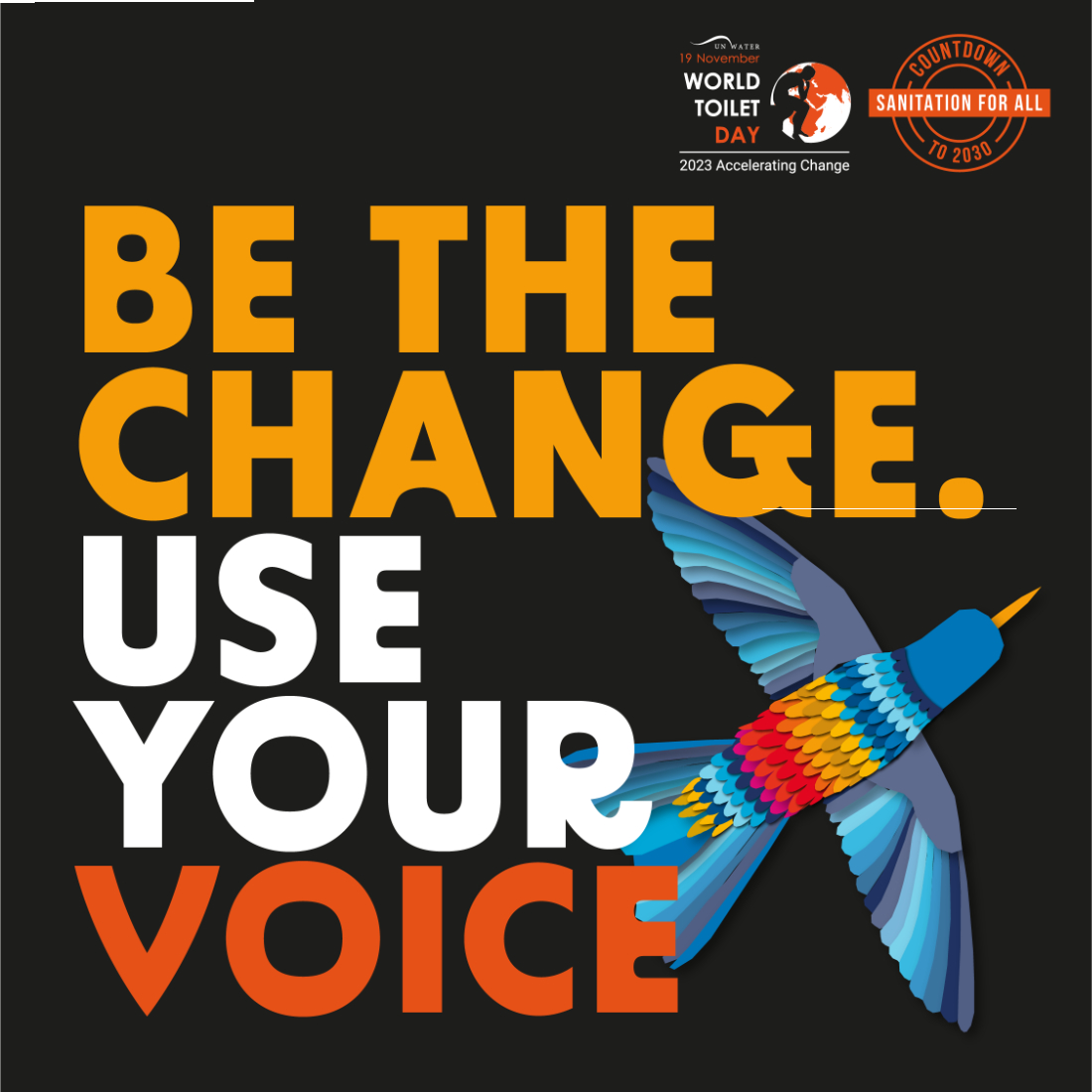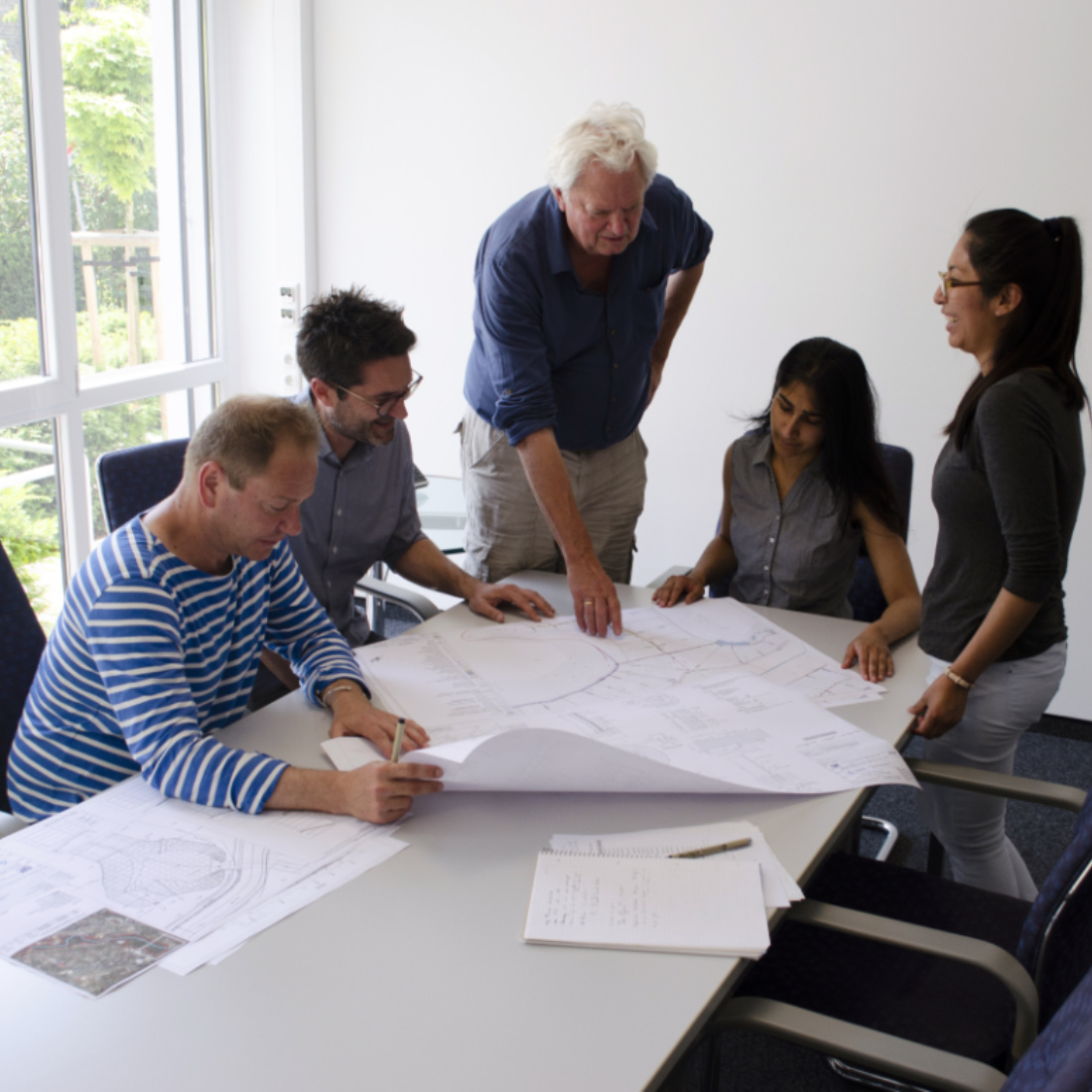news19.11.2023
A Toilet is Small but Mighty Just Like a Hummingbird! World Toilet Day 2023!

November 19th is World Toilet day. Designated as a United Nations observance since 2013, it was initially celebrated in 2001 by the World Toilet Organization (www.worldtoilet.org). This day serves to raise awareness about the global sanitation crisis, highlighting that 3.5 billion people still lack access to safe sanitation. This year’s theme is “Accelerating Change”, symbolized by the hummingbird, encouraging individuals to take personal action to improve sanitation systems.
Currently, we – governments worldwide, the civil society, the private sector, and the scientific community – are significantly behind in achieving the Sustainable Development Goal 6 (SGG 6), which aims to ensure safe toilets and water for all by 2030. Access to clean and readily available water is a fundamental aspect of the world we aspire to live in. There is still sufficient freshwater available on our planet to make this a reality. Unfortunately, millions of people still perish annually due to diseases related to inadequate water supply, sanitation, and hygiene, primarily because of poor water management and infrastructure.
Issues such as water scarcity, below average water quality, and insufficient sanitation facilities negatively impact the food security, livelihoods, and educational opportunities of disadvantaged families across the globe. Currently, over two billion people live with the constant threat of limited access to freshwater resources.

Toilet at schoolyard in Northern Uganda
Access to an adequate supply of drinking water for personal and domestic hygiene, as well as access to sanitation services, were recognized as human rights by the UN General Assembly in 2010 and formally established as two separate human rights in 2015.Every child, woman, and man should always have access to affordable water in sufficient quantity and quality.
When considering the current state of SDG 6, it becomes evident that there is still a significant need for action, and the world must work faster to meet the sanitation target of SDG 6 – safe toilets and water for all by 2030 – on time. To achieve SDG 6, the pace of progress in providing clean drinking water would need to increase sixfold, sanitation services would need to improve fivefold, and hygiene measures would need to increase eightfold. This would require, among other things, a significant increase in infrastructure investments and efforts to mitigate the effects of climate change!
If we don’t act, it is estimated that by 2030, 3 billion people will still be living without access to safe sanitation, 2 billion will continue to lack safe drinking water, and 1.4 billion will remain without access to basic hygiene facilities. This highlights the urgent need for efforts to improve global access to essential water, sanitation, and hygiene resources.
We at CES, are passionate engineers and our expertise focuses on water related projects. The sectors our experts focusing on are:
WATER SUPPLY, WASTEWATER, HYDRAULIC ENGINEERING and PUBLIC INFRASTRUCTURE. Due to the World Toilet Day 2023 and its theme “Accelerating Change” we take a closer eye on the importance of people having access to drinking water and sanitation facilities. Our specialists are agents of change, and they work on various water supply and wastewater project to improve the living and health conditions of people and environmental protection. In this context, we’d like highlight the project „Support to the Water and Sanitation Development Facility North in Northern Uganda“, in which CES served as the Project Management Consultant.
In urban areas of Uganda, the sanitation coverage, mainly through pit latrines, is estimated at 81%. However, the 2010 MDG progress report on sanitation and drinking water by WHO and UNICEF indicates that access to improved sanitation in urban areas is around 34%, excluding 50% of the urban population using shared facilities. The primary goal of the project is to enhance faecal sludge management in small towns in Uganda. This involves identifying and clustering small towns to guide sector investment in cost-effective shared faecal sludge treatment/disposal facilities. Additionally, the aim is to encourage better involvement of the private sector and local authorities in service delivery. Priority has been given to towns with piped water systems. The assessment identified 50 potential clusters and treatment/disposal facilities across the country, with 13 already in use and 5 planned for implementation by the Ministry of Water and Environment (MWE). This leaves a gap of 32 other treatment/disposal facilities that need to be established in the medium to long term. Despite the sanitation coverage being estimated at 81% in urban areas, mainly from pit latrines, the functionality status of these facilities is unknown, and many are in poor condition. This lack of access to improved sanitation, coupled with malnutrition, contributes to increased mortality and morbidity, especially for children under the age of 5 years. Diarrhea, a significant contributor to childhood mortality in Uganda, claims the lives of 33 children daily. Frequently, children contract the disease through the consumption of unsafe water or contact with contaminated hands – whether their own, their parents‘, or caregivers‘ – that haven’t been properly washed with soap because there is no option to do so. The overall objective of the project is to secure sufficient, hygienic, and sustainable water supply, and sanitation in the selected refugee hosting communities in Northern Uganda through an increase in the capacities of the water supply and sanitation infrastructure. With regard to the project, the objective is to implement numerous WASH projects in small towns and rural areas. This entails emphasizing initiatives to expand and rehabilitate water supply systems, enhance public sanitation facilities, and develop faecal sludge treatment capabilities. Additionally, the project aims to build the capacity of organizations involved in water and sanitation efforts. In phases III and IV of the project, the main goal is to secure water supply in chosen towns as well as supporting schools with toilet facilities. Regarding this, the project tries to respect and implement a gender approach by integrating waste disposal facilities for menstrual products and supporting young girls and women as vulnerable groups in society. Furthermore, the construction of public toilets with showers is part of the project.
As a partner of the Ugandan Ministry of Water and Environment (MWE), we are proud to be part of this outstanding project, initiated by the BMZ and financed by the KfW Entwicklungsbank.
